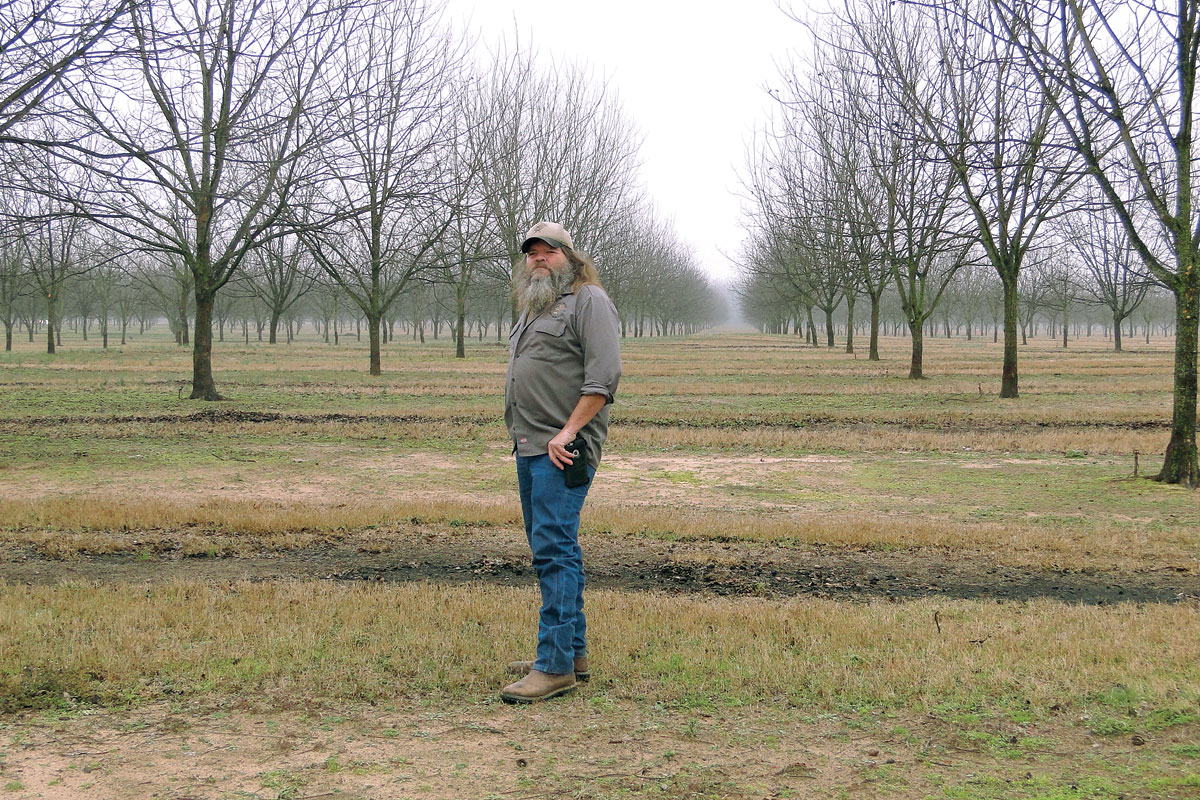
Jacci and Max Ryan returned to her family’s farm in 2003
SPRINGDALE, ARK. – Jacci (Jacklyn) and Max Ryan live on a 70-acre farm, with part of the property having Beaver Lake frontage. Jacci’s great-grandparents homesteaded 640 acres in the early 1900s. In 1962, the Corps of Engineers bought the bottomland property for the dam, creating Beaver Lake. Her grandfather was part owner of five area sale barns, and her father, Jack Perry, once president of the Arkansas Cattlemen’s Association, ran a cow/calf operation, which Jacci and Max continued after he passed. When Jacci returned to Arkansas in 2003 with concern for her aging parents, she built a home where her great grandparents’ house had been.
Being raised on a farm with fond memories of her grandfather’s sale barn and her childhood with the cattle, she refused her dad’s cattle after he passed. Because she and Max were advised they had too many cows for the land to support, she sold five recommended cows and has always regretted it.
“I now know we could have managed somehow and discovered at the sale barn that four of the five were pregnant,” Jacci sadly explained.
Max’s learning curve was steep with extensive reading and essential hands-on training. He is especially appreciative of Jeff Windham from Morrilton, who taught him how to maintain farm equipment and run the hay cutter, and to Roy Henson from Avoca, who took the time to teach him to run a baler.
The Ryan herd consists of 27 mostly Angus females, a registered Angus bull, and one Longhorn, a family tradition. Through the years, Jacci’s father raised Angus and dabbled with both Charolais, which she said seemed to have birthing problems, and Herefords but decided to stay with the Angus breed because of marketability. The bull is with the cows from January to April, with calves born in the winter.
“Cold weather eliminates the fly issue and makes the calves eat more so they gain weight faster,” Max explained.
Calves are weaned three months before sale in May and grained using a 14 percent ration supplemented by loose mineral. The cows receive both hay and grain during the winter. Calves are vaccinated and bull calves are castrated with a goal of selling them around 500 pounds at the Benton County Sale Barn.
Farm pasture organization is unusual because useable land is divided into only two pieces, one for haying and the larger for grazing. The hayfield is typically harvested twice a year and produces 200 4-by-5-foot round bales. The herd is turned into the hayfield after the second cutting.
Soil is tested regularly, and a local company makes a customized granular fertilizer they apply to the hayfield and grazing pasture as needed. The land is also over seeded when necessary with Bermuda since Jacci’s dad switched from fescue to Bermuda years ago, a grass they wish to maintain. Pigweed, Johnsongrass and perrilla mint cause some difficulties. The couple is still searching for the perfect balance of weed killers so weeds are gone without stunting grass growth.
A highly-useful tip the couple ever received came from Jim Taylor who lives in Clifty. Originally helping Jacci’s dad on the farm, he explained that the proper time to hay was when the grass had heads that had not yet browned. Part-time farmhand, Kenny Fipps, provides essential preventative maintenance advice.
Last fall, Kenny installed an automatic waterer to provide fresh rather than pond water for the cattle and to avoid breaking ice in the winter. To get the cattle accustomed to the device. The water occasionally iced so Kenny installed a heating element to keep that from happening again.
Jacci’s community efforts also extend to agriculture. When working cattle, she sometimes invites non-farming girlfriends and families as part of an agri-tourism effort to familiarize them with current methods. Many of the families originated in India, China and Japan. Lastly, Jacci is an active officer of Arkansas’s chapter of Back Country Horsemen of America which strives to maintain and protect historic, recreational trails and federal land.
Though not originally in favor of keeping the Perry cattle, Max is very grateful they did because he has absorbed and fallen in love with what he once did not want.
“Whether learned or innate, the key element to success is love of land, animals and the agricultural lifestyle,” she said.
Sonora Farms combines heritage and experience with a lack of agricultural context and, therefore a different perspective thereby creating a beautiful agricultural corner in the Beaver Lake region of Arkansas.
Jacci is a licensed real estate broker in both Texas and Arkansas while Max, a true urbanite, retired from Ryan’s Clothing in Springdale after 43 years. Jacci is a community-based advocate. Later, as area director of the Black Stallion Literacy Program for first and fourth graders, she raised over $100,000 to purchase The Black Stallion books and brought horses to schools to encourage students to read through the love of horses in Springdale and other area districts. Jacci recently published a book exposing fraud in senior care, detailing her difficult experiences with home care and spearheading an effort to create a House bill to change those workers from independent contractors to employees requiring fingerprinting and background checks.







